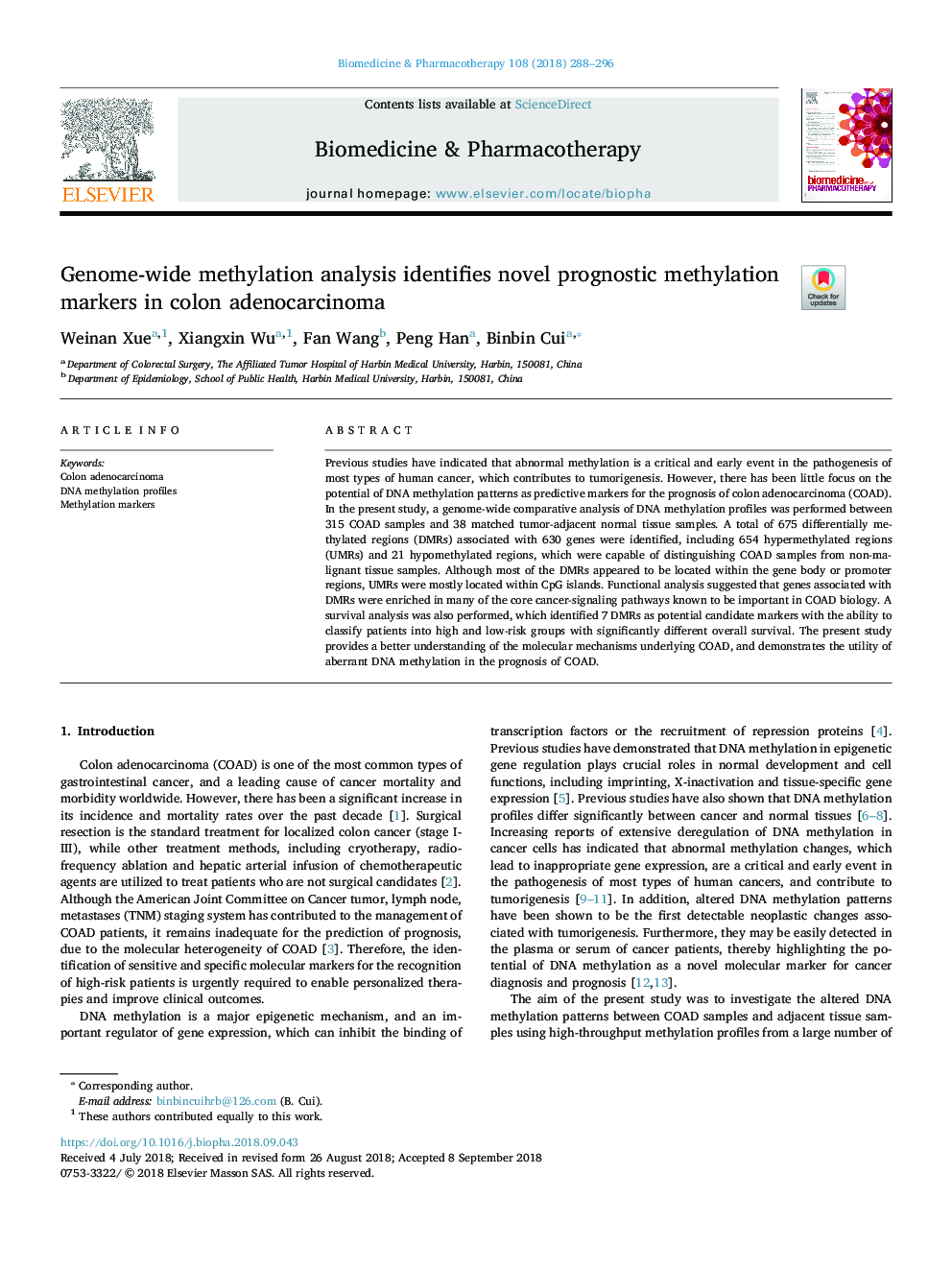| Article ID | Journal | Published Year | Pages | File Type |
|---|---|---|---|---|
| 10158319 | Biomedicine & Pharmacotherapy | 2018 | 9 Pages |
Abstract
Previous studies have indicated that abnormal methylation is a critical and early event in the pathogenesis of most types of human cancer, which contributes to tumorigenesis. However, there has been little focus on the potential of DNA methylation patterns as predictive markers for the prognosis of colon adenocarcinoma (COAD). In the present study, a genome-wide comparative analysis of DNA methylation profiles was performed between 315 COAD samples and 38 matched tumor-adjacent normal tissue samples. A total of 675 differentially methylated regions (DMRs) associated with 630 genes were identified, including 654 hypermethylated regions (UMRs) and 21 hypomethylated regions, which were capable of distinguishing COAD samples from non-malignant tissue samples. Although most of the DMRs appeared to be located within the gene body or promoter regions, UMRs were mostly located within CpG islands. Functional analysis suggested that genes associated with DMRs were enriched in many of the core cancer-signaling pathways known to be important in COAD biology. A survival analysis was also performed, which identified 7 DMRs as potential candidate markers with the ability to classify patients into high and low-risk groups with significantly different overall survival. The present study provides a better understanding of the molecular mechanisms underlying COAD, and demonstrates the utility of aberrant DNA methylation in the prognosis of COAD.
Related Topics
Health Sciences
Medicine and Dentistry
Oncology
Authors
Weinan Xue, Xiangxin Wu, Fan Wang, Peng Han, Binbin Cui,
